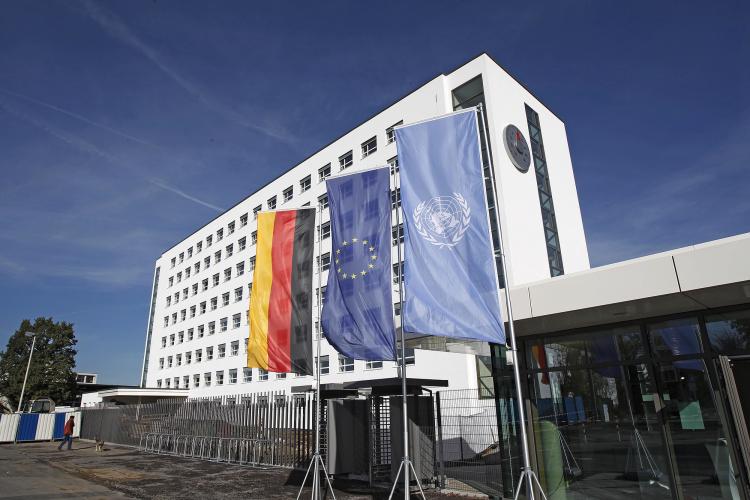Background and mandate
The enhanced transparency framework (ETF) for action and support is established by Article 13 of the Paris Agreement. Decision 18/CMA.1 and its annex, as well as decision 5/CMA.3 and its annexes constitute the basis for the modalities, procedures and guidelines (MPGs) for the ETF.
In accordance with the MPGs, Parties shall submit their first biennial transparency reports (BTRs) and national inventory reports, if submitted as a stand-alone report, at the latest by 31 December 2024[1], and no less frequently than on a biennial basis.[2] Least developed countries (LDCs) and small island developing States (SIDS) may submit the information referred to in Article 13, paragraphs 7, 8, 9 and 10, of the Paris Agreement at their discretion. [3], [4]
Decision 18/CMA.5[5] recalled that support shall be provided to developing country Parties for the implementation of Article 13 of the Paris Agreement, as well as that support shall also be provided for the building of transparency-related capacity of developing country Parties on a continuous basis.
Among other provisions, decision 18/CMA.5 acknowledged the existing financial, technical and capacity-building support for developing country Parties to address challenges in implementing the ETF; recognized the challenges that developing country Parties, in particular the LDCs and SIDS, face in implementing ETF in a sustainable manner, including establishment and enhancement of their national reporting systems within their respective national governments; underscored the importance of the adequacy, predictability and timeliness of the support provided to developing country Parties, recognizing the special circumstances of the LDCs and SIDS, for building and enhancing their institutional and technical capacity for implementing the ETF; also underscored the importance of the Global Environment Facility (GEF) continuing its efforts to provide adequate and timely support to developing country Parties for implementing the ETF, to further simplify the existing processes for approving projects under the GEF and its implementing agencies, and exploring alternative programming modalities, procedures and processes for facilitating and expediting access to financial resources for enabling activities for supporting developing country Parties in meeting their requirements under the ETF and for building and enhancing their institutional and technical capacity for reporting under the Paris Agreement on a continuous basis.
Furthermore, the CMA, at its fifth session, requested the secretariat to organize an in-person workshop, to be held at SBI 60 (June 2024), as well as regional online workshops to be held prior to that session, with the relevant stakeholders, such as the GEF and its implementing agencies, as appropriate, on support available to developing country Parties for preparing their BTRs and enhancing sustainable institutional capacity and national reporting systems within their Governments for implementing the ETF, and in providing guidance on the application process for transparency-related projects. The CMA also requested the secretariat to organize an in-session facilitative dialogue, to be held at SBI 60, to facilitate the sharing of experience in gathering, analysing and managing data, in particular by developed country Parties, that may be helpful for developing country Parties in enhancing their institutional capacity and national reporting systems for implementing the ETF.
The secretariat organized four online regional workshops between 15 and 18 April 2024, attended by 378 national experts from 111 Parties and 14 support providers.
This note provides information on the organization of the in-person workshop at SBI 60 (June 2024).
Overall approach
In-person workshop will be convened in-person, on Tuesday, 4 June 2024, from 3pm to 6 pm, in the AHH upper conference room, UN Campus. Please consult daily programme and CCTV for the exact schedule of the event.
The workshop is open to all SB 60 participants. National transparency experts and national focal points, who are involved in transparency-related activities are strongly encouraged to attend the workshop.
For more information please follow the link below;
